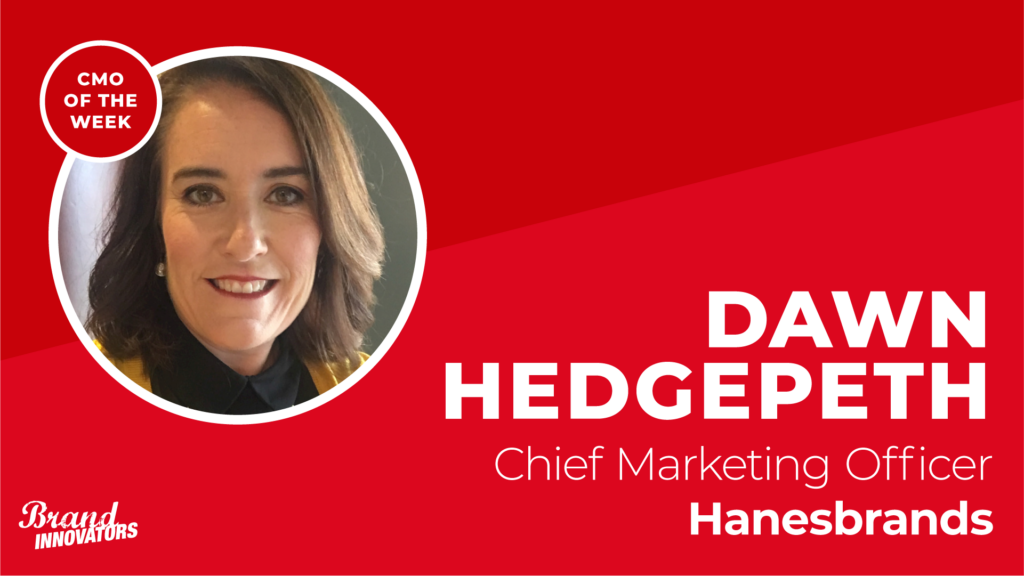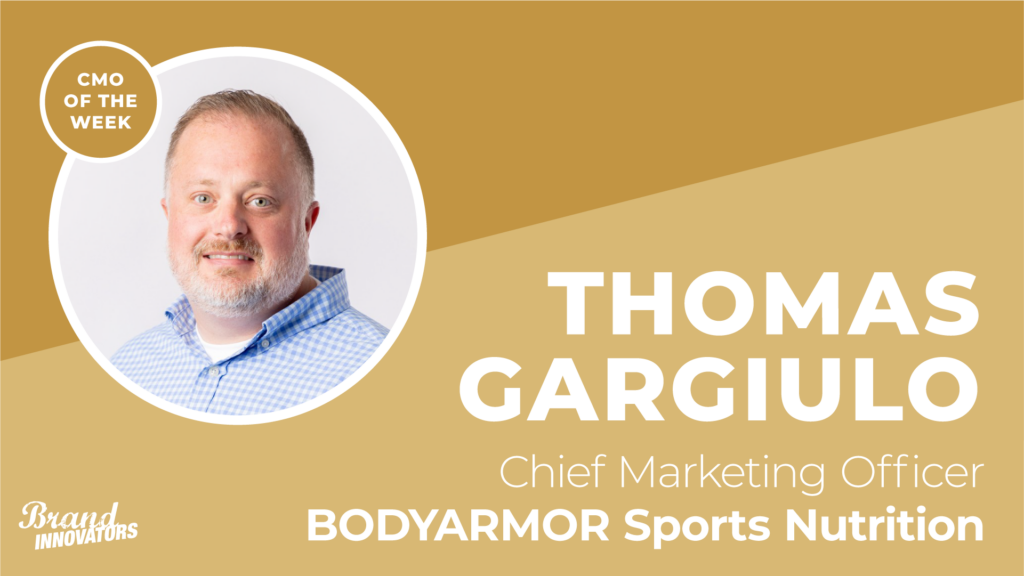When Tara Rush first joined Audi of America in April 2019 as SVP-Chief Communications Officer, she was the only woman on the automaker’s leadership team at the time.
But just over two years later, following a December 2020 promotion to Chief Marketing Officer, Rush says: “I’m so happy to be sitting here today with a 50/50 split of men and women on our leadership team.” However, she notes, “In the auto industry, there’s still a path to go to create more diversity in the industry.”
Tackling that challenge head-on is just one of the many first-year priorities Rush has on her agenda as CMO, which comes with some major positive headwinds — first quarter 2021 marked the best quarter in Audi of America’s history, fueled by 54,840 vehicle deliveries and record sales for its e-tron fully electric SUV during the time period. That milestone should bode well for Audi’s recently announced goal to make 30% of its U.S. model lineup fully electric or plug-in hybrid electric vehicles by 2025.
Such historic activity at the company is also a sign that automotive demand has bounced back from a difficult 2020. “I think during the first year of the pandemic, obviously people were a bit reserved in their spending. But now we see consumer demand really coming back, especially with two of our popular vehicles the Q5 and the Q3,” Rush says. “The Q5 meets consumers’ SUV needs, and the Q3 is a nice entry point to come into the luxury portfolio. But the most exciting part for us was all the momentum we saw with our EVs [electric vehicles].”
Rush’s path to CMO at Audi is unique to most marketers, as she spent the majority of her career on the communications side of the business — most recently at Heineken USA, where she spent four years as Chief Corporate Affairs Officer, and previously at Emanate PR, Mars and Ketchum, among others. But despite spending so much time on the other side of the table, Rush says there’s plenty of parallels to the role. “As a comms person, you’re really focused on storytelling and building out the overall story of your brand with a real emphasis and meaning for your consumers. Some of that work goes hand in hand so nicely with marketing that it feels like a really natural transition,” she says.
Brand Innovators caught up with Rush from her home office in the Washington D.C.-Metro Area to learn more about her first six months on the job as CMO, the quarantine-era innovations that she expects to stick around and accelerating the company’s diversity & inclusion efforts. The conversation has been edited for length and clarity.
Brand Innovators: You were recently promoted to CMO in December after spending the majority of your career on the Comms & Corporate Affairs side of the business. What has that transition been like?
Tara Rush: It’s been a really exciting six months now to make that transition. For everyone, this past year has been an intense and wild ride that we’ve all been experiencing. I feel really grateful to work for Audi on a team that looks at crossfuncitonal moves and is open to developing talent and bringing leaders into different spaces in the company. Especial;ly at a time when we’re really transitioning into this new era of electrification that’s going to bring the brand into a whole new phase of its journey. Having those fresh perspectives, having people with all different types of background is so important when you’re breaking the mold and moving into a new era for the overall industry.
How did Audi initially adapt its business to meet the new needs of the COVID-19 pandemic?
One of the first things we did, of course, was focus internally on the health and safety of our people. We created an internal working team to be the crisis response to make sure all our employees were taken care of with remote working. And when it comes to marketing and PR/comms, we quickly looked at two things: One was, how could we leverage our existing partnerships to bring action into the community where it was needed? And the other was, how do we reimagine some of the things we were doing with a COVID lens in mind based on what they really need from the brand right now?
One of the first things we did was create a program called Audi At Your Door, which was based on the fact that people weren’t necessarily able to get to dealerships. We created an experience where we could bring the test-drive experience right to your door, through a touchless delivery. We were taking into mind all the implications of the pandemic and what people needed in that moment, how do you use digital, increase the spend and information getting to people virtually and digitally. Audi At Your Door was a great success during that time and enabled us to continue to allow people to take test drives in a safe way.
When it comes to partners and experiences, we have a partnership with the Lee Initiative that’s all about bringing diversity and inclusion into the culinary industry. And they told us that one of the biggest problems that existed was in the food supply chain and ensuring safe delivery. We were able to purchase ingredients from sustainable farmers and bring those ingredients to sustainable businesses, and those restaurants in turn provided meals for the community in need. We also reimagined a fleet of vehicles we normally had set aside for influencers and other stakeholders and turned them into delivery vehicles for serving frontline workers. We worked with Chef Millie Peartree to deliver meals to communities in need, and we worked with Uncle Paulie’s in L.A. to get food to frontline workers. We just paused and said “OK, it’s not business as usual, this is a whole new world, how can we do things that will be meaningful for people and the community?” It was amazing to see internally how our employees felt so fulfilled by that as well — especially during a time that was so hard on people.
What long-term consumer trends or behaviors from the past year do you think will stick now that we’re coming out the other side of it?
I think in some ways people are so eager to get some of what they’ve been missing to get back into the world. I don’t think it will be an either/or, the beauty is that it will be a blend. When we think of experiences, we’ve been able to move some of our big launch events to digital as opposed to doing them in-person. Before, people would say “You’re launching a car, people need to be sitting behind the wheel.” But there are things you can do virtually with moments in time during the rollout.
We all now know you can do an end-of-secrecy launch event for a vehicle and be able to share it with way more people virtually. I think it will become a combination when we go back, from test drive experiences and being able to do more with the purchase process online. But we’ll see a blend of people still wanting to go into dealerships, to see the vehicles, sit behind the wheel and actually get out in the world, too.
2021 marked the first time in three years that Audi decided to opt out of the Super Bowl. What was the strategy behind that decision, and would you return in future years – why or why not?
The brand has a history of being in the Super Bowl quite a bit, the “Daughter” spot in 2017 around equal pay was a great moment for the brand to get that message out and something that everyone here at the company was really proud of. The Super Bowl is a great platform, it’s just a question of looking at priorities in a year like COVID. You have to look spend, what’s launching at the moment — it just has to be about the right timing, the right message to make an investment of that size.
In 2018, we actually didn’t have a spot in the Super Bowl and this past year we didn’t either. It doesn’t mean we won’t, some of the highlights of my career even before being at Audi were moments that involved the Super Bowl. It’s a fantastic moment in time, you just have to be thoughtful about it each year.
How has your media mix evolved in the past year, especially as consumption behaviors shift further and further away from linear TV?
I think especially when we have a big job to do around consumers moving into EV and transforming a whole industry, we definitely have to look at all-new emerging platforms. But when you’re looking for mass awareness, there’s still a role for TV, online video, full-episode players, and connected-TV streaming. It’s still a mix, and we’re not convert all to one channel.
We are looking at exploring some new content opportunities, and we think increasing our mix with digital is the right move. It’s been interesting in my first six months in the role to really dig into a new area for me from a comms perspective looking at media formats. It’s a widely different angle looking at the data behind our media spend.
What progress has Audi made in the past year with regard to its own diversity, equity & inclusion, and what are some actions you’ve taken as a marketer to advance those?
This is a topic that’s close to my heart and has always been in many of the roles I’ve had over the years. At Audi I’m actually the executive sponsor of our inclusion committee and strategy. Even before the pandemic started, we had developed an Audi inclusion council made up of employees from every department across the organization to really be the voice of our people and help us inform the strategy, help guide the strategy so it’s coming from employees as well as executive leadership.
We’ve spent a lot of time internally figuring out how to bring a more diverse staff and nurture a more inclusive environment. That includes the usual steps of doing all the inclusion training, but also taking extra steps around hiring and promotions and making sure we have diverse interview panels, and bringing in diverse groups of candidates for all those roles. We’ve been able to move the needle quite well on that front.
On the marketing side, many of our partnerships have enabled us to have a focus on D&I, such as the Lee Initiative and the work we do with them. We also have a long standing relationship with Major League Soccer and DC United and DC Score, which serves underserved communities to bring more diversity into the sport of soccer. We also have partnered with the American Film Institute for the year to create a director’s fellowship for female directors. We’ve also had a longstanding relationship with Forbes for over five years now and sponsored the Forbes Women Summit each year. And in addition to that, we have a scholarship fund with female STEM students, which is an idea incubator with STEM students to bring more diversity and more females from STEM education into the field of automotive.
We also have made a commitment from a marketing perspective that 50% of the spokespeople and behind-the-scenes directors and content creators represent diversity. We find the behind-the-camera representation is just as important as who you have in front of the camera. It’s not an either/or, it’s a both. To create great work, you need that really diverse team behind the scenes who’s informing the creative and bringing it to life in a way that positively represents inclusion.
Andrew Hampp is an entertainment marketing consultant for Brand Innovators and the founder of consultancy 1803 LLC, based in Berkeley, California.




